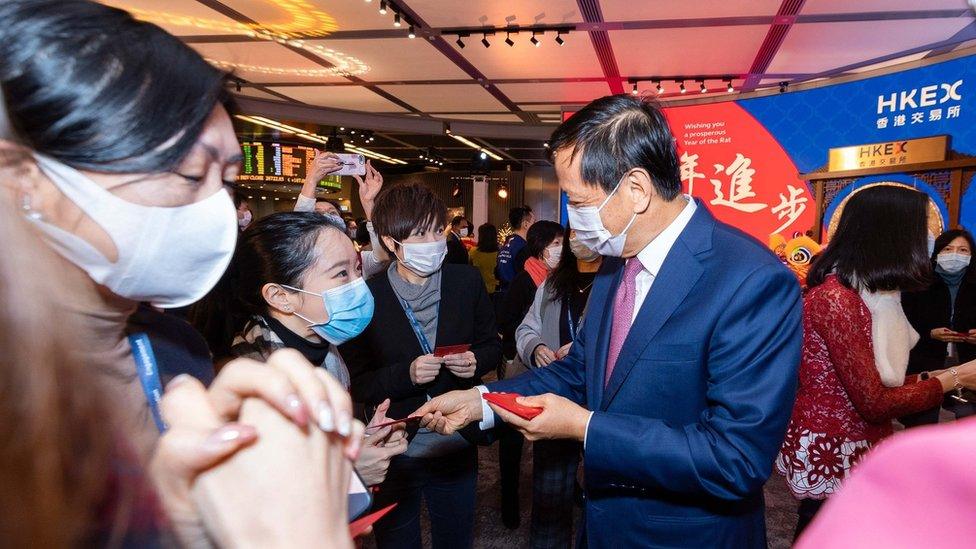Hong Kong stock market takes a tumble on reopen
- Published

Hong Kong's Hang Seng stock market index fell 3% when it re-opened on Wednesday as investors feared the economic impact of the coronavirus.
Almost all of the 50 Hong Kong-listed Chinese companies that make up the Hang Seng Index were in the red.
Travel and casino operators were hit the hardest as traders assess the economic impact of the deadly virus.
Coronavirus has already claimed more than 130 lives with more than 9,000 suspected cases.
China's main stock markets, the Shanghai and Shenzhen stock exchanges, will only reopen on 3 February after Chinese authorities extended the Lunar New Year break by three days.
Other stock markets around Asia saw more upbeat trading having already taken a hit from negative investor sentiment earlier in the week.
One of the biggest fallers on the Hang Seng Index was Sands China which fell by up to 6%. The firm is a subsidiary of Las Vegas Sands and has a casino in Macau, a popular destination for mainland Chinese tourists.
Since Friday, the numbers of visitors to Macau has dropped 69% according to official figures, leaving it as a near-ghost town during what is typically the busiest time of year.
The Hang Seng ended the day 2.8% lower.
Closures
The economic fallout from the coronavirus is not just reserved to stock markets. Businesses are also being affected as companies remain closed until at least 9 February following orders from Beijing.
Airlines, hotel operators and casinos were the first to be affected as Chinese travellers stayed at home over the normally-busy festive period.
The impact is now being felt across the Chinese economy from manufacturing through to retailers. Foreign firms are also worried about the effects on their Chinese operations.
Starbucks has announced that it is temporarily closing around 2,000 stores in China to protect staff and help contain the virus. McDonald's is also closing restaurants in five Chinese cities and introducing new health protocols.
- Published29 January 2020
- Published29 January 2020